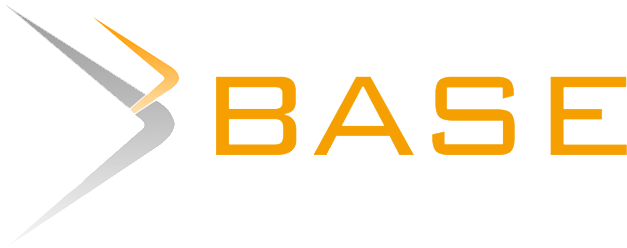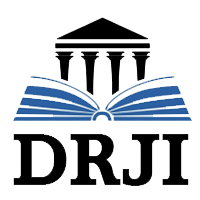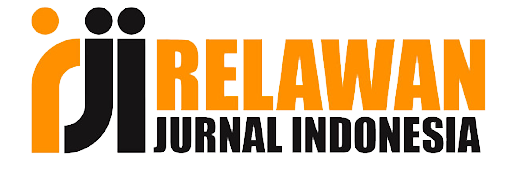Hubungan antara Harga Diri dan Kepercayaan Diri dengan Motivasi Berprestasi Siswa SMA
Abstract
The purpose of this study is to determine the relationship between self-esteem and self-confidence to achievement motivation and also to find out the effective contribution given by the independent variable to the dependent variable. The study population consists of high school students majoring in science in grade XI, aged between 17 and 19 years. Eleventh grade science students were chosen because they already had sufficient self-esteem and self-confidence and were considered to have better achievements. Cluster random sampling was employed to select a research sample of 140 students. The scaled used in this study includes a self-esteem scale, a self-confidence scale, and an achievement motivation scale. This study uses multiple regression analysis because it uses two independent variables and one dependent variable. The study found that self-esteem and self-confidence have a partial and simultaneous influence on achievement motivation variables. The variables of self-esteem and self-confidence made a significant contribution of 18.7% to the achievement motivation variable. The variable of self-esteem has a greater influence on the achievement motivation variable, at 13.5%, compared to the variable of self-confidence, which has an influence of 5.2%. This study shows that a student's self-esteem and self-confidence can impact their motivation to achieve.
Tujuan dari penelitian ini untuk mengetahui hubungan antara harga diri dan kepercayaan diri terhadap motivasi berprestasi dan juga mencari tahu sumbangan efektif yang diberikan oleh variabel bebas terhadap variabel tergantung. Populasi penelitian ini merupakan siswa kelas XI SMA jurusan IPA yang berusia 17-19 tahun. Dipilihnya siswa kelas XI jurusan IPA dengan karena mereka sudah memiliki harga diri dan kepercayaan diri yang cukup dan dianggap memiliki prestasi yang lebih baik. Cluster random sampling digunakan pada penelitian ini untuk mencari sampel penelitian dengan sampel penelitian berjumlah 140 siswa. Skala yang digunakan sebagai alat ukur pada penelitian ini adalah skala harga diri, skala kepercayaan diri dan skala motivasi berprestasi. Penelitian ini menggunakan analisis regresi berganda karena melibatkan dua variabel bebas dan satu variabel tergantung. Pada penelitian ini didapatkan hasil variabel harga diri dan kepercayaan diri baik secara parsial dan simultan memiliki pengaruh terhadap variabel motivasi berprestasi. Variabel harga diri dan kepercayaan diri memberi sumbangan efektif sebesar 18,7% terhadap variabel motivasi berprestasi. Secara persial variabel harga diri memberi pengaruh lebih besar, yaitu sebesar 13,5% dibandingkan variabel kepercayaan diri sebesar 5,2% terhadap variabel motivasi berprestasi. Pada penelitian ini menunjukkan bahwa harga diri dan kepercayaan diri yang dimiliki oleh siswa berpengaruh terhadap motivasi berprestasi mereka.
Keywords
Full Text:
PDFReferences
Adiputra, S., & Mujiyati, M. (2017). Motivasi dan prestasi belajar siswa di Indonesia: Kajian meta-analisis. Konselor, 6(4), 150–157.
Aisyah, A., Walid, A., & Kusumah, R. G. T. (2019). Pengaruh rasa percaya diri terhadap motivasi berprestasi siswa pada mata pelajaran ipa. Scholaria: Jurnal Pendidikan Dan Kebudayaan, 9(3), 217–226.
Ayu, S. M., & Prayitno, S. H. (2018). Hubungan antara harga diri dan konsep diri dengan prestasi belajar bahasa inggris mahasiswa prodi DIII keperawatan tahun ajaran 2017-2018. Insight: Jurnal Pemikiran Dan Penelitian Psikologi, 14(2), 140–153.
Balogun, A. G., Balogun, S. K., & Onyencho, C. V. (2017). Test anxiety and academic performance among undergraduates: The moderating role of achievement motivation. The Spanish Journal of Psychology, 20, E14.
Białecka-Pikul, M., Stępień-Nycz, M., Sikorska, I., Topolewska-Siedzik, E., & Cieciuch, J. (2019). Change and consistency of self-esteem in early and middle adolescence in the context of school transition. Journal of Youth and Adolescence, 48, 1605–1618.
Birkeland, M. S. , Breivik, K. , & Wold, B. (2014). Peer acceptance protects global self-esteem from negative effects of low closeness to parents during adolescence and early adulthood. Journal of Youth and Adolescence, 43, 70–80.
Bosse, A. (2015). Need for achievement (n ach) and occupation. The Huron University College Journal of Learning And Motivation, 53(1).
Coelho, V. A. , Bear, G. G., & Brás, P. (2020). A multilevel analysis of the importance of school climate for the trajectories of students’ self-concept and self-esteem throughout the middle school transition. Journal Youth Adolescence, 49, 1793–1804.
Daft, R. L., & Lane, P. G. (2018). The leadership experience (7th ed.). Cengage Learning.
Damon, W., Lerner, R. M., & Eisenberg, N. (2006). The Self. In Handbook of child psychology: Social, emotional, and personality development (pp. 505–570). John Wiley & Sons, Inc.
Diniaty, A. (2014). Mengungkap motivasi berprestasi pada mahasiswa. Lembaga Penelitian dan pengabdian kepada masyarakat UIN Suska riau.
Effendi, E. , Mursilah, M. , & Mujiono, M. (2018). Korelasi tingkat perhatian orang tua dan kemandirian belajar dengan prestasi belajar siswa. Titian Ilmu: Jurnal Ilmiah Multi Sciences, 10(1), 17–23.
Fernald, L. D. , & F. P. (2014). Munn’s introduction to psychology (5 edition). A. I. T. B. S. Publishers and Distributors.
Fitri, E. , Zola, N. , & Ifdil, I. (2018). Profil kepercayaan diri remaja serta faktor-faktor yang mempengaruhi. PPI (Jurnal Penelitian Pendidikan Indonesia), 4(1), 1–5.
Franke, G., & Bogner, F. X. (2013). How does integrating alternative conceptions into lessons influence pupils’ situational emotions and learning achievement? Journal of Biological Education, 47(1), 1–11.
Ghufron, M. N., & Risnawita, R. S. (2016). Teori-teori psiklogi. ArRuzz Media.
Gorman, P. (2004). Motivation and Emotion (1st ed.). Routledge.
Gorrese, A. , & Ruggieri, R. (2013). Peer attachment and self-esteem: A meta-analytic review. Personality and Individual Differences, 55(5), 559–568.
Guay, F., Ratelle, C. F., Roy, A., & Litalien, D. (2010). Academic self-concept, autonomous academic motivation, and academic achievement: Mediating and additive effects. Learning and Individual Differences, 20(6), 644–653.
Harter, S. (2012). The construction of the self: Developmental and sociocultural foundations (2nd edition). The Guilford Press.
Haryani, R., & Tairas, M. M. W. (2014). Motivasi berprestasi pada mahasiswa berprestasi dari keluarga tidak mampu secara ekonomi. Jurnal Psikologi Pendidikan Dan Perkembangan, 3(1), 30–36.
Hendriana, H. , Rohaeti, E. E. , & Soemarmo, U. (2017). Hard skills dan soft skills matematika siswa. Refika Aditama.
Hoffmann, J. P., Erickson, L. D., & Spence, K. R. (2013). Modeling the association between academic achievement and delinquency: An application of interactional theory. Criminology, 51(3), 629–660.
Irawati, N., & Hajat, N. (2012). Hubungan antara harga diri (self esteem) dengan prestasi belajar pada siswa SMKN 48 di Jakarta Timur. Jurnal Ilmiah Econosains, 10(2), 193–210.
Ismail, I., Giatman, M., Silalahi, J., & Oktaviani, O. (2018). Pengaruh dan pemanfaatan beasiswa Program Indonesia Pintar (PIP) terhadap hasil belajar siswa SMKN 1 Tilatang Kamang. Journal of Civil Engineering Dan Vocational Education, 5(1), 2118–2123.
Ismiyati, I. (2015). Peningkatan prestasi dan motivasi belajar ppkn siswa kelas viii a smp Negeri 2 Gedangsari-Gunungkidul melalui pembelajaran group investigation. Scholaria: Jurnal Pendidikan Dan Kebudayaan, 5(1), 39–56.
Kanza, D. (2016). The importance of self-confidence in enhancing student’s speaking skill-case study: First year LMD students at Mohammad Kheider University of Biskra. Requirements for the Master Degree in Science of Languages.
Karimi, A. (2014). The relationship between self-confidence with achievement based on academic motivation. Kuwait Chapter of the Arabian Journal of Business and Management Review, 4(1), 210.
Kartono, K. (2010). Kenakalan remaja. Jakarta: PT Raja Grafindo Persada.
Khairat, M., & Adiyanti, M. G. (2015). Self-esteem dan prestasi akademik sebagai prediktor subjective well-being remaja awal. Gadjah Mada Journal of Psychology (GamaJoP), 1(3), 180–191.
Khan, A. , & Alam, S. (2015). Self-concept in relation to achievement motivation of high school students. The International Journal of Indian Psychology, 2(4).
Liu, R. X. (2012). The effects of strain and centrality of strain on delinquency among Chinese adolescents. Sociological Inquiry, 82(4), 578–600.
McClelland, D. C. (2010). The Achieving Society. Martino Fine Books.
Mobius, M. M., Niederle, M., Niehaus, P., & Rosenblat, T. S. (2011). Managing self-confidence: Theory and experimental evidence. National Bureau of Economic Research.
Nath, S. R. (2012). The role of pre-school education on learning achievement at primary level in Bangladesh. International Journal of Early Years Education, 20(1), 4–14.
Nguyen, D. T. , Wright, E. P. , Dedding, C. , Pham, T. T. , & Bunders, J. (2019). Low self-esteem and its association with anxiety, depression, and suicidal ideation in vietnamese secondary school students: A cross-sectional study. Frontiers in Psychiatry, 10, 698.
Orth, U., & Robins, R. W. (2014). The development of self-esteem. Current Directions in Psychological Science, 23(5), 381–387.
Palavan, Ö. (2017). Impact of drama education on the self-confidence and problem-solving skills of students of primary school education. Kastamonu Education Journal, 25(1).
Rahmawati, S. (2017). Motivasi berprestasi dan prokrastinasi akademik mahasiswa. Jurnal Psiko Utama, 5(2), 60–73.
Ramadhany, M., Habsji, T. Al, & Mukzam, M. D. (2013). Pengaruh program kesejahteraan karyawan terhadap semangat kerja karyawan dan prestasi kerja karyawan (Studi pada karyawan tetap kompartemen SDM Petrokimia Gresik). Jurnal Administrasi Bisnis, 2(2), 127-136.
Reigeluth, C. M. (2011). Instructional design theories and models: An overview of their current status. Lawrence Erlbaum Associates Publishers.
Reitz, A. K. (2022). Self‐esteem development and life events: A review and integrative process framework. Social and Personality Psychology Compass, 16(11), e12709.
Santrock, J. W. (2013). Child development: An introduction ISE (14th ed.). McGraw Hill.
Santrock, J. W. (2014). Adolescence (15th ed.). McGraw - Hill.
Singh, K. (2011). Study of achievement motivation in relation to academic achievement of students. International Journal of Educational Planning & Administration, 1(2), 161–171.
Smith, R. L. (2015). A contextual measure of achievement motivation: Significance for research in counseling. Vistas Online, 1(14), 1–11.
Soufi, S., Damirchi, E. S., Sedghi, N., & Sabayan, B. (2014). Development of structural model for prediction of academic achievement by global self-esteem, academic self-concept, self-regulated learning strategies and autonomous academic motivation. Procedia-Social and Behavioral Sciences, 114, 26–35.
Srivastava, R., & Joshi, S. (2014). Relationship between self-concept and self-esteem in adolescents. International Journal of Advanced Research, 2(2), 36–43.
Srivastava, S. K. (2013). To study the effect of academic achievement on the level of self confidence. Journal of Psychosocial Research, 8(1).
Stupnisky, R. H., Perry, R. P., Renaud, R. D., & Hladkyj, S. (2013). Looking beyond grades: Comparing self-esteem and perceived academic control as predictors of first-year college students’ well-being. Learning and Individual Differences, 23(1), 151–157. https://doi.org/10.1016/j.lindif.2012.07.008
Verma, R. K. , & Kumari, S. (2016). Effect of self-confidence on academic achievement of children at elementary stage. Indian Journal of Reseach, 5(1), 81–83.
Wardana, D. S. (2013). Motivasi berprestasi dengan kinerja guru yang sudah disertifikasi. Jurnal Ilmiah Psikologi Terapan, 1(1), 98–109.
Weng, X., Ran, M.-S., & Chui, W. H. (2016). Juvenile delinquency in Chinese adolescents: An ecological review of the literature. Aggression and Violent Behavior, 31, 26–36.
Winkel, W. S. (2015). Psikologi belajar. Media Abadi.
Zeigler-Hill, V., Li, H., Masri, J., Smith, A., Vonk, J., Madson, M. B., & Zhang, Q. (2013). Self-esteem instability and academic outcomes in American and Chinese college students. Journal of Research in Personality, 47(5), 455–463.
DOI: https://doi.org/10.24176/perseptual.v9i1.10771
Article Metrics
Refbacks
- There are currently no refbacks.

Jurnal Psikologi Perseptual (eISSN 2580-9520) is licensed under a Creative Commons Attribution-ShareAlike 4.0 International License














